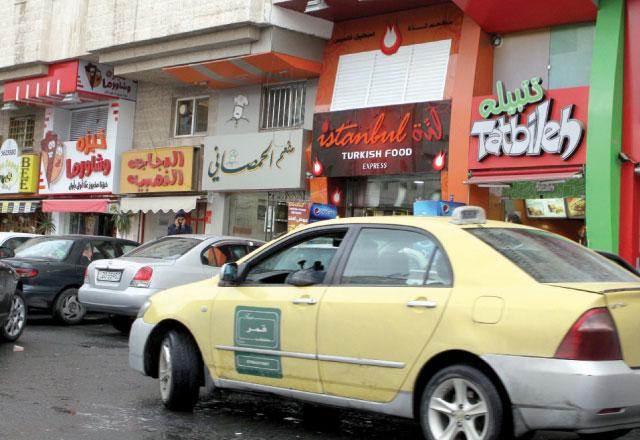You are here
New law aimed at blacklisting food safety violators — JFDA
By Dana Al Emam - Nov 02,2014 - Last updated at Nov 02,2014

AMMAN — Parliament is expected to discuss a new law in its ordinary session that imposes stricter financial and legal penalties on restaurants and food outlets that violate the law, according to an official.
“The law is expected to greatly minimise food violations, since it will stipulate including the names of violating institutions and restaurants on a black list,” Jordan Food and Drug Administration (JFDA) Director General Hayel Obeidat told The Jordan Times Saturday.
Noting that there are around 68,000 food-related institutions in Jordan, including factories, supermarkets, malls and restaurants, Obeidat pointed to the “haphazard spread of small food outlets and shops” that do not meet their licence requirements.
The large number of food and beverage establishments requires increasing the number of trained staff at the JFDA, he said.
“Many of these outlets get the municipality permit but do not get permits from the ministries of health and environment, as well as the JFDA,” the official added, urging municipalities to cooperate further in inspection.
However, JFDA teams continue to carry out “regular and surprise” inspection campaigns on eateries across the Kingdom and test samples of food to detect any violations.
During October, the administration closed down between 18 and 22 food outlets due to storage, cleanliness or food safety violations, Obeidat noted, concluding that food-related violations in the Kingdom are “within normal international ranges”.
“On average, food-safety violations are registered in 3.5 per cent of tested samples, while the percentage in imported food items is as low as 1 per cent,” he said.
Meanwhile, Raed Hamada, president of the Jordan Association for Restaurants and Sweets Shops Owners, attributed some health violations to a shortage of staff at food establishments, especially local workers, despite “suitable” job opportunities.
“Jordanians are less likely to take these jobs, and those who do, go to work in Gulf Arab countries for better salaries once they gain enough experience and hone their skills,” Hamada said.
He noted that the number of guest workers at tourist restaurants is not allowed to exceed 30 per cent of the staff, while non-tourist restaurants can have non-Jordanians comprising 45 per cent of their employees.
Almost all the front doors of restaurants and sweets shops have a “workers needed” sign, Hamada said, noting that salaries of experienced cooks at restaurants reach up to JD800.
However, he noted that the syndicate is not authorised to take any measures to supervise restaurants and sweets shops or penalise them in case of violations since it is not recognised as a “labour union”.
Restaurants are not always to blame for food poisoning, which can even occur “at home “, Hamada said, citing the US, where 85 million cases of are reported every year.
Related Articles
AMMAN — Authorities plan to further coordinate their inspection visits to restaurants and food outlets during Ramadan and the summer season
AMMAN — Around 215 food establishments have been referred to the attorney general’s office and another 108 closed since the beginning of the
AMMAN — The inspection teams of the Jordan Food and Drug Administration (JFDA) partially shut down 25 food-related facilities, including str

















